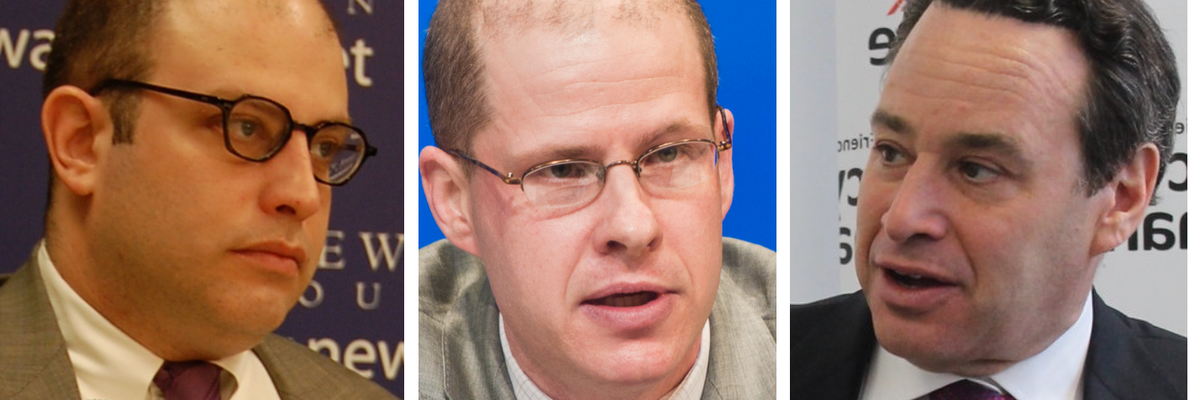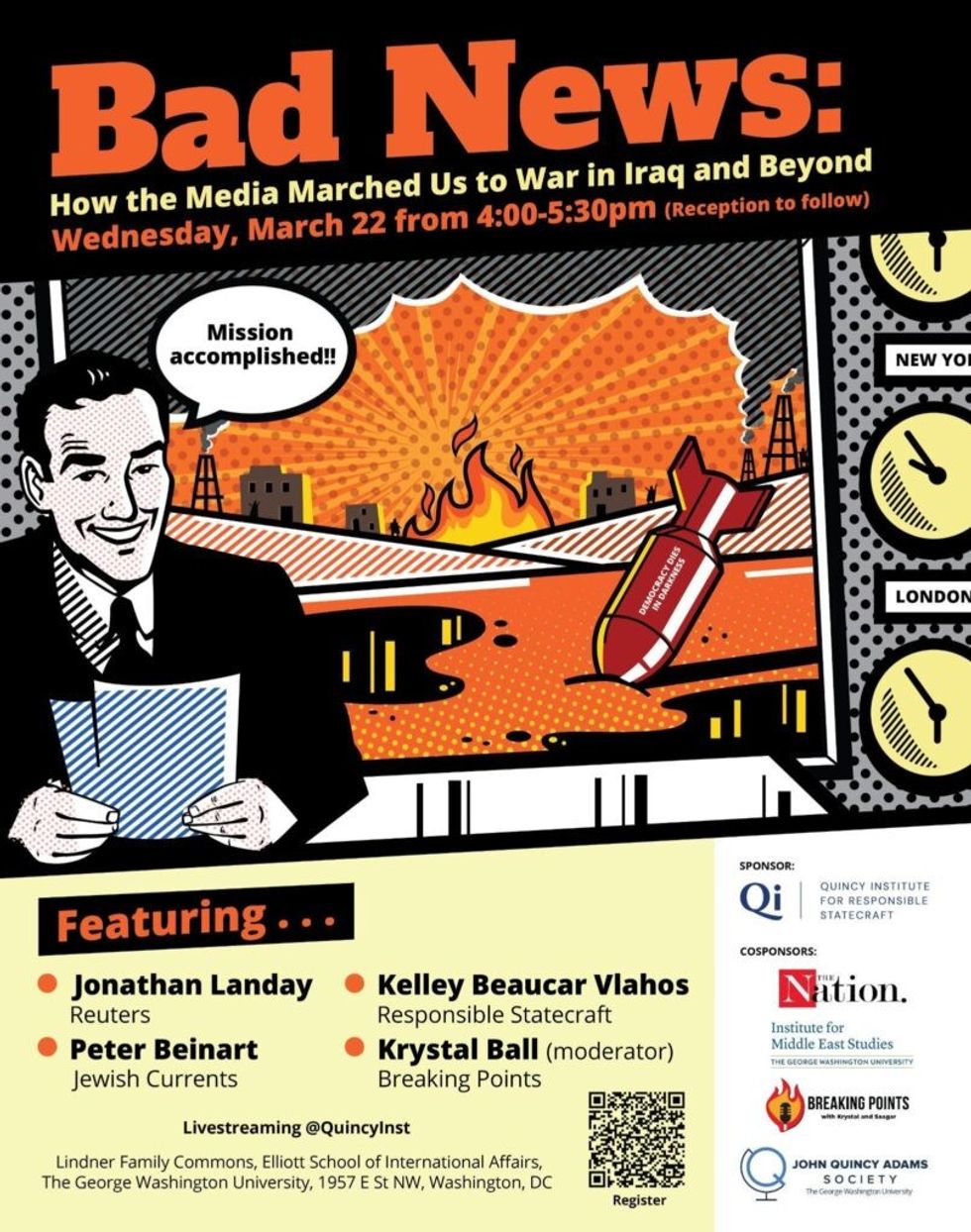In his doubling down of support for the war in Iraq, David “Axis of Evil” Frum all but exonerates the architects and promoters of the war (which would include himself, being a speechwriter for President Bush until 2002, then a media cheerleader) as such:
To my mind, the most important lessons regard government decision making, offering a warning against groupthink and self-deception. Crucial decision makers started with an assumption that regime change in Iraq would be cheap, easy, and lightly contested. They then isolated themselves from all contrary information—until it was too late.
Frum, like his contemporary Eli Lake, is an interesting case because each has in the last few weeks attempted to both acknowledge the conventional wisdom after 20 years that the war was a failure, while still arguing best intentions and look, “Iraq really is better off without Saddam Hussein." On the latter, I will let my colleague Connor Echols’ heartbreakin interviews with actual Iraqis answer that. What I’m keen to explore is Frum’s assertion that: “I don’t believe any leaders of the time intended to be dishonest. They were shocked and dazed by 9/11. They deluded themselves.”
It is highly doubtful that Frum vulcan mind-melded with each of the architects, or saw into their souls a la Bush and Vladimir Putin. We know from highly documented accounts that, contra Frum’s simplistic summation, the Bush administration was influenced by a vanguard of well-placed neoconservatives who had set regime change into motion back in the Clinton administration. This was no 9/11 hangover. As Jim Lobe pointed out in these pages in 2021, the 2001 attacks enabled leaders and operators like Paul Wolfowitz, Richard Perle, Scooter Libby, Robert Kagan, and Bill Kristol to have the war they wanted long before those planes flew into the Twin Towers.
Frum’s flimsy rationalization conveniently ignores that the mainstream media was totally and willingly co-opted into this “delusion” too, and without it, the invasion and aftermath, which included eight years of occupation and then another two years of military assistance to help the Iraqis roust ISIS (which the U.S. invasion created) wouldn’t have carried on in the manner that it did.
I say that because as the polling showed the American people losing faith in the war by January 2005, the mainstream media backgrounded all of the bad news (like military massacres, civilian deaths, torture, sectarian violence, PTSD) while foregrounding Pentagon talking points that said new counterinsurgency methods and tactical wins meant victory was “right around the corner.” They lied about reconstruction progress, too, as Peter Van Buren points out right here.
An entire ecosystem of information management ensured that the major networks, newspapers and radio, owned by only a handful of conglomerates, were singing the same tune, all of the time.
Frum, Lake, and columnists like Max Boot, who now, conveniently, says he regrets it, were what Spock would call top “lifeforms” in that ecosystem.
We must talk about this because these men and their compradores in the Washington swamp want to dismiss any comparison to how we view Ukraine and how the media is covering U.S. policy in that war. They have not learned any lessons about meddling and the limits of American power writ large, just in failed wars of the past.
This is why I am joining Peter Beinart, Jonathan Landay, and Krystal Ball this Wednesday in D.C. to talk about how we can commemorate the 20th anniversary of the Iraq War by sussing out how the media was complicit, and what it can do to learn from those lessons. Please consider joining us in person or watch our livestream. It is not about re-litigating or belaboring, but about setting the record straight, lest we fall into the same traps again.


















